Vitamins for Kids: Top 7 Nutrients to Keep Kids Healthy
Vitamins for Kids: Top 7 Nutrients to Keep Kids Healthy
Thanks to the dramatic amount of growth and development they are experiencing, children need a generous allowance of vitamins and minerals. They are critical for their healthy growth, activity, learning, and behavior. Not getting enough of certain vitamins and minerals can lead to serious health problems.
To help you make sense of the alphabet soup of vitamins for kids, here are a few vital stand-outs when it comes to healthy, growing bodies and minds along with good dietary sources of each.
1. Vitamin A
Vitamin A serves a variety of purposes in kids and adults. It promotes the growth of the cells and tissues of the body, assists the eyes in adjusting to dim and bright lights, keeps skin healthy, works to prevent infection, and is crucial for the maturation of the intestinal and lung linings. Unfortunately, vitamin A deficiency is a major public health problem worldwide.
Good Sources of Vitamin A:
- Carrots
- Sweet potatoes
- Squash
- Apricots
- Spinach
- Broccoli
- Cabbage
- Fish oils
- Egg yolks
2. Vitamin C
Vitamin C does more than just boost the immune system to help keep infections at bay. It also helps form and repair red blood cells, bones, and tissues; promotes healthy muscles, connective tissue, and skin; helps the body heal wounds; is important for building strong bones and teeth, and is an essential cofactor for enzymes that make neurotransmitters for the brain.
Good Sources of Vitamin C:
- Citrus fruits
- Strawberries
- Tomatoes
- Melons
- Papayas
- Mangos
- Cabbage
- Broccoli
- Cauliflower
- Spinach
3. Vitamin D
Vitamin D promotes bone and tooth formation and helps the body absorb calcium. Additionally, it also functions as a hormone with roles in immune system health, insulin production, and regulation of cell growth.
Vitamin D is called the “sunshine vitamin” because the body can produce it when the skin is exposed to sunlight. But your child’s body isn’t able to make vitamin D when covered with clothing or sunscreen to block the sun’s rays.
Therefore, the American Academy of Pediatrics recommends that if there is any doubt that your child is eating enough Vitamin D, then you should consider supplementation.
Good Sources of Vitamin D:
- Fatty fish, like tuna, mackerel, and salmon
- Foods fortified with vitamin D
- Beef liver
- Egg yolks
4. Vitamin E
Vitamin E is a major antioxidant protector for cell membranes, the sites of most cell activities. It also boosts the immune system, helps the body fight germs, and is important for DNA repair and other metabolic processes.
Good Sources of Vitamin D:
- Almonds
- Spinach
- Sweet Potato
- Avocado
- Wheat Germ
- Sunflower Seeds
5. Calcium
Calcium, the most abundant mineral in the body, is essential in helping to build a child’s healthy bones and teeth. Osteoporosis, a brittle bone disease that affects older adults, begins in childhood if diets are not providing adequate calcium-rich foods. It also promotes healthy nerve, heart, and muscle function helps blood clot and helps the body convert food into energy.
Good Sources of Calcium:
- Milk and other dairy products
- Spinach
- Kale
- Okra
- Collards
- White beans
6. Magnesium
Magnesium is a very important nutrient that most people don’t get enough of. It is required by over 300 enzymes, most of which are involved in energy generation and utilization. Magnesium also balances calcium for a healthy heartbeat, nerve transmission, brain connectivity, skeletal and smooth muscle contraction, and various cell processes.
Good Sources of Magnesium:
- Dark leafy greens
- Nuts
- Seeds
- Fish
- Beans
- Avocados
- Bananas
7. Zinc
Zinc is needed by more than 70 enzymes that aid digestion and metabolism. It is also essential for DNA structure, sexual maturation, immunity, behavior, skin health, and hair renewal.
Good Sources of Zinc:
- Oysters
- Beef
- Lamb
- Spinach
- Wheat Germ
- Nuts
- Seeds
- Beans
The best possible source of vitamins and minerals for kids is high-quality, organic, locally-grown, unprocessed food. However, for most time-crunched families, eating home-cooked, well-balanced meals made from these ingredients 100% of the time just isn’t possible.
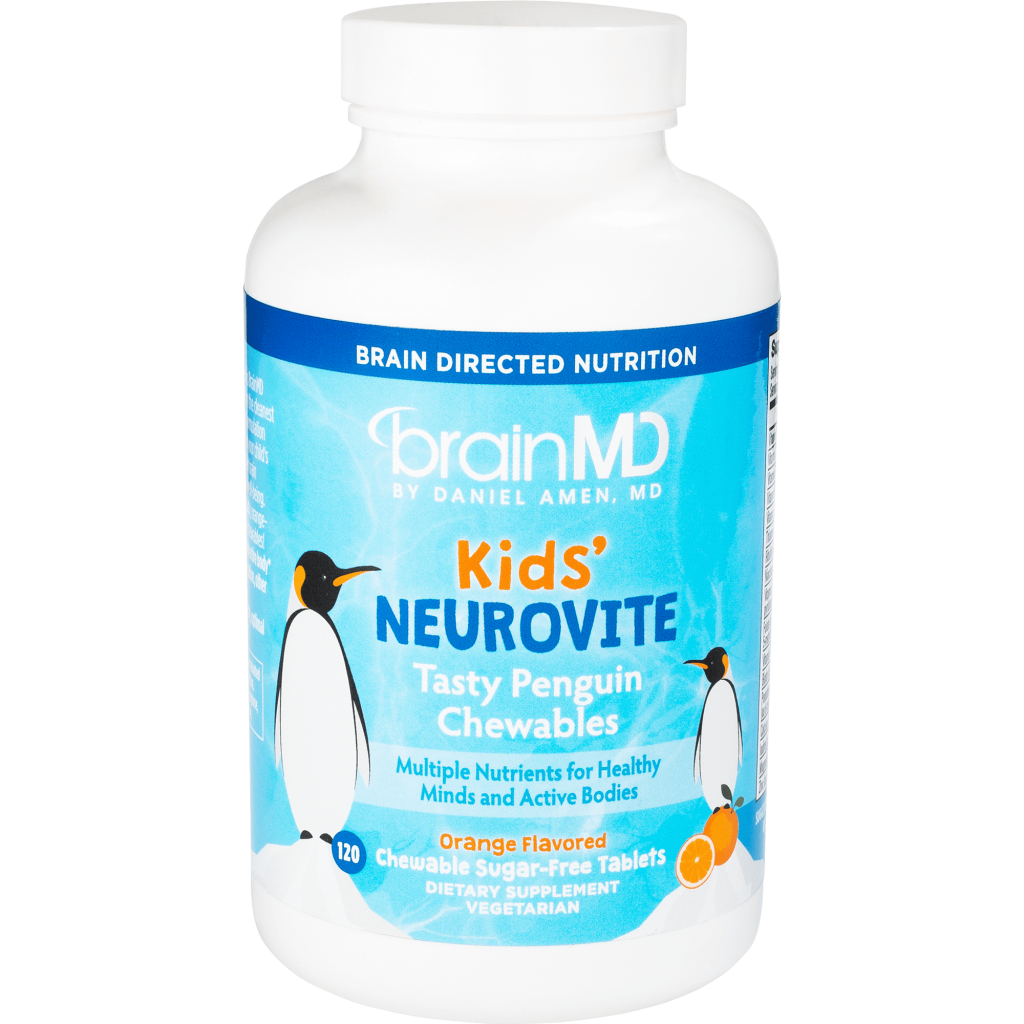
Kids’ NeuroVite Chewables out beats other conventional brands in both potency and high-quality ingredients. Compared to other leading supplement brands, Kids’ NeuroVite has nearly 3 times more ingredients than the average kids’ vitamin, all of them optimized for the highest absorption in kids. It’s concentrated, naturally derived and made with integrity. Its diverse set of over 50 nutrients makes it the best vitamin for kids to take to keep them healthy and give you peace of mind.
We’ve scoured the clinical research to document which nutrients are best proven for kids over the long term. And your child will LOVE the taste of the orange-flavored penguin chewables which are free from sugar, dairy, gluten, wheat, eggs, and artificial colorings or flavorings.
“Get kids started right with the support they need! Kids’ NeuroVite was developed for my own children and grandchildren. It can help yours too.” – Daniel G. Amen, MD
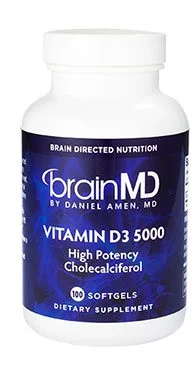
|
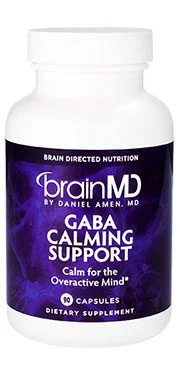
|
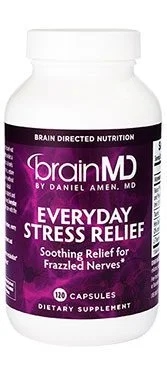
|
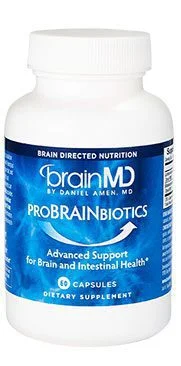
|
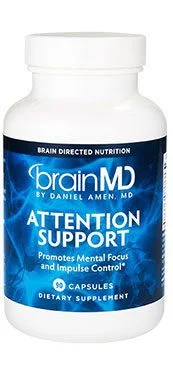
|
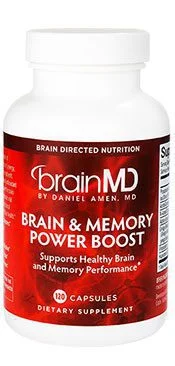
|
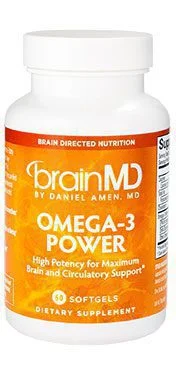
|
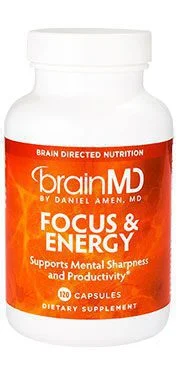
|
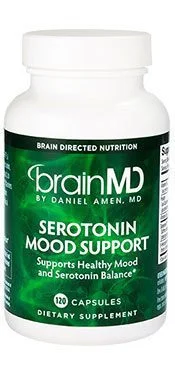
|
- Veterans Day: One Warrior Shares Some of the Best Ways to Heal from Trauma - November 2, 2023
- Could Your Mood Issues Be Linked to a Pain In the Neck? - October 13, 2023
- What’s At the Root of Your Sciatic Nerve Pain? - September 20, 2023




I’am a Senior, I have had problems taking Vitamins my whole life, especially oil based vitamins. I know I’am nutrient deficient because of that and plus, I have many many food intolerances , gluten being # 1 and health issues with my kidneys, and severe quick weight loss.( down to 103 lbs) I stay dehydrated constantly., with very poor digestion. Would it be helpful for me to take your children’s vitamins , if I can tolerant them, than not taking any vitamins at all. I just found out about my kidney problem and I’m at loss as to what I need to do to help myself. I’m not taking any Medications, Allison